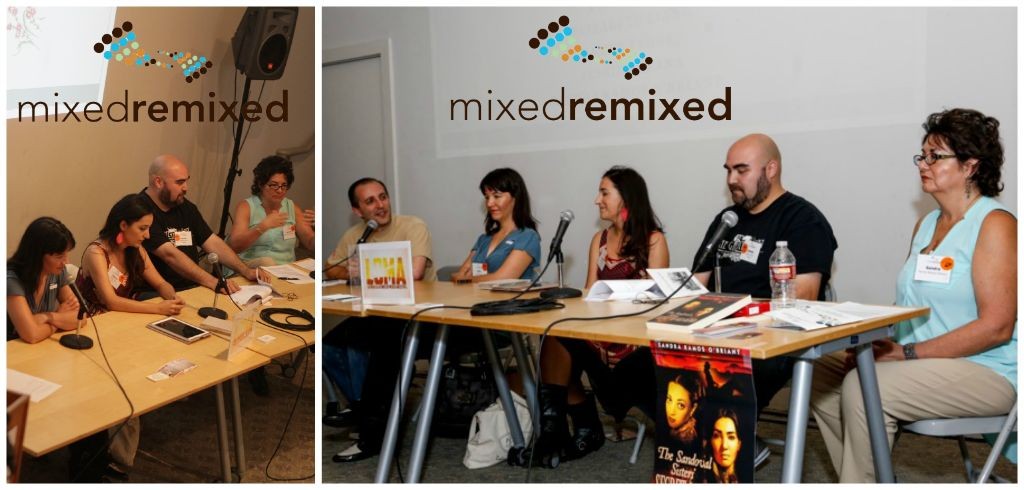We were very excited to include in our line-up of programs a panel presentation curated by MASC called Mixed Latinos in the Flesh.
Mixed Latinos in the Flesh
Facilitator: Thomas Lopez
Panelists: Elizabeth Liang, James Tyner, Jessica Arana, Sandra Ramos O’Briant
Writers, poets, visual artists and performers shared how their identities as mixed Latinos influence their work. The works of the panelists range in diversity from literary and theatrical memoir to historical fiction to poetry. Mixed Latinos are likely the largest single segment of the mixed community although very little is known about them. Even the name “mixed Latino” requires an explanation. Attendees learned of the unique experience of mixed Latinos as well as the similarities they have to the mixed experience.
Thomas Lopez
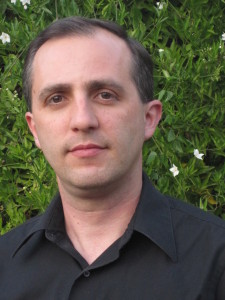 Thomas Lopez has been a member of MASC for over fifteen years and is a past president of the organization. He has made numerous television, print, and on-line media appearances and speaking engagements as a keynote and panelist. As a long-time board member he has also organized conferences, a mini-film festival, and diversity training workshops. Apart from MASC, Thomas is a mechanical engineer having worked in multiple industries the most recent being medical devices. He was born and raised in Southern California with parents from Mexican American and German-Polish roots.
Thomas Lopez has been a member of MASC for over fifteen years and is a past president of the organization. He has made numerous television, print, and on-line media appearances and speaking engagements as a keynote and panelist. As a long-time board member he has also organized conferences, a mini-film festival, and diversity training workshops. Apart from MASC, Thomas is a mechanical engineer having worked in multiple industries the most recent being medical devices. He was born and raised in Southern California with parents from Mexican American and German-Polish roots.
Elizabeth Liang
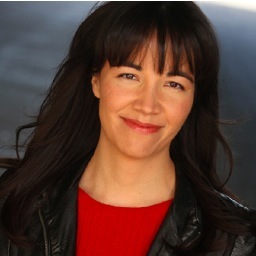 Elizabeth Liang is an actress and writer. Her one-woman show, Alien Citizen: An Earth Odyssey, had a full run in Hollywood in May 2013 and has begun its national tour in festivals and the college circuit. Her essays on developing the show and producing Chekhov’s Three Sisters have been published and reprinted. Elizabeth was raised in Central America, North Africa, the Middle East, and Connecticut as a Guatemalan-American business brat of Chinese-Spanish-Irish-French-German-English descent. She graduated from Wesleyan University, where she got her B.A. in English Literature with a minor in Film Studies. Elizabeth transferred to Wesleyan from Wellesley College, where she had won the Isabelle Eastman Fisk Performance Prize for acting. After graduating, she attended the American Academy of Dramatic Art in New York City during the summer before she moved to Los Angeles. In L.A. she studied acting with Jonathan Banks, Marilyn Fox & Gar Campbell at Pacific Resident Theatre, and Cinda Jackson at The Lost Studio. She also studied Shakespeare with Louis Fantasia, and improv with ComedySportz and Gary Austin, co-founder of The Groundlings.
Elizabeth Liang is an actress and writer. Her one-woman show, Alien Citizen: An Earth Odyssey, had a full run in Hollywood in May 2013 and has begun its national tour in festivals and the college circuit. Her essays on developing the show and producing Chekhov’s Three Sisters have been published and reprinted. Elizabeth was raised in Central America, North Africa, the Middle East, and Connecticut as a Guatemalan-American business brat of Chinese-Spanish-Irish-French-German-English descent. She graduated from Wesleyan University, where she got her B.A. in English Literature with a minor in Film Studies. Elizabeth transferred to Wesleyan from Wellesley College, where she had won the Isabelle Eastman Fisk Performance Prize for acting. After graduating, she attended the American Academy of Dramatic Art in New York City during the summer before she moved to Los Angeles. In L.A. she studied acting with Jonathan Banks, Marilyn Fox & Gar Campbell at Pacific Resident Theatre, and Cinda Jackson at The Lost Studio. She also studied Shakespeare with Louis Fantasia, and improv with ComedySportz and Gary Austin, co-founder of The Groundlings.
On stage Elizabeth has acted at East West Players, Theatre of NOTE, the Odyssey Theatre Ensemble, Quantum Theatre Company, 2100 Sq Ft, and Pacific Resident Theatre, among others. She also served as Co-President of the Artistic & Management Committee at NOTE. Elizabeth has won Stage Scene LA, Garland, and LA Weekly Awards for her performances. She was twice named one of the “5 Best Actresses of the Year” by Review Plays and was also named one of the “Top 10 Actresses of the Year” by Dave Barton of the OC Weekly. Elizabeth has acted in both English- and Spanish-language features and short films that have been screened all over the globe. Some of her television credits include Law & Order: LA, Criminal Minds, and a recurring role on The West Wing.
James Tyner
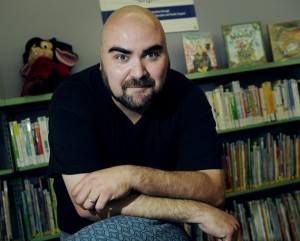 As Fresno’s first poet laureate, James Tyner is now tasked with endorsing poetry and literary arts, with the goal of increasing awareness of the city’s history of poetic accomplishment. Tyner, 38, graduated Fresno State’s Creative Writing Master of Fine Arts program with distinction in 2009. But he was an accomplished writer even before tossing the graduation cap. During his college years, Tyner earned the Larry Levis Poetry Prize and the Andres Montoya Scholarship. Tyner has run Poets in the Library, one of the longest-running free poetry series in the Valley, a program that has attracted poets and writers from all around since 2005.
As Fresno’s first poet laureate, James Tyner is now tasked with endorsing poetry and literary arts, with the goal of increasing awareness of the city’s history of poetic accomplishment. Tyner, 38, graduated Fresno State’s Creative Writing Master of Fine Arts program with distinction in 2009. But he was an accomplished writer even before tossing the graduation cap. During his college years, Tyner earned the Larry Levis Poetry Prize and the Andres Montoya Scholarship. Tyner has run Poets in the Library, one of the longest-running free poetry series in the Valley, a program that has attracted poets and writers from all around since 2005.
Jessica Arana
 Jessica Arana is a NYC trained artist and designer now based in Los Angeles.
Jessica Arana is a NYC trained artist and designer now based in Los Angeles.
Her artwork expresses her vivencias (its paradoxes and differences), as a multidisciplinary and Multiracial artist. Her most recent work uses memories, embroidered drawings, and photography to reveal her complex identity experiences. Jessica’s artwork acts as sutures to the sometimes-fractured experiences of women and Multiracial individuals. And, she incorporates the concepts of fluid identity, mestiza and hybrid consciousness, diaspora, and feminist theory into her pieces. For Jessica, the creative process is a way of finding home and belonging, and a method of creating Borderland spaces for self-authorship outside of monoracial normativity.
Jessica received her B.F.A. from the School of Visual Arts in NYC and her M.A. degree with distinction from California State University, Northridge. She has also studied fine art and photography at the Instituto Allende in Mexico. As an art director, Jessica has lead design initiatives for many leading brands and firms nationwide.
Sandra Ramos O’Briant
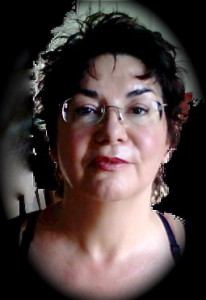 As the daughter of a Spanish Catholic and a Texan Baptist, Sandra Ramos O’Briant was introduced to both the self-flagellating Penitentes of New Mexico and the tent show holy-rollers of East Texas. In addition, her hometown of Santa Fe, the city of Holy Faith, is host to state politics and the attendant corruption, artists and their hangers-on, and a thriving tourist economy. All of this went into her first book, The Sandoval Sisters’ Secret of Old Blood. The issues confronted by three sisters are contemporary: racism, sexual and religious intolerance, and the power of superstition. Finally, it is a story of what constitutes a family, and the myths associated with the blood and bounds of loyalty. Sandra Ramos O’Briant’s grandmother was a Sandoval, and married a Gallegos. Her mother married the O’Briant. Her father was no sweetheart, but she’s stubbornly clung to his name. Growing up in Santa Fe, both her brother and she got the sh** kicked out of them for having an Anglo last name. Yet, her mother had proudly relinquished her own father’s Spanish surname because of the discrimination she experienced for being Mexican. For her, an Anglo last name was a step up. She had no idea her future children would experience reverse discrimination.
As the daughter of a Spanish Catholic and a Texan Baptist, Sandra Ramos O’Briant was introduced to both the self-flagellating Penitentes of New Mexico and the tent show holy-rollers of East Texas. In addition, her hometown of Santa Fe, the city of Holy Faith, is host to state politics and the attendant corruption, artists and their hangers-on, and a thriving tourist economy. All of this went into her first book, The Sandoval Sisters’ Secret of Old Blood. The issues confronted by three sisters are contemporary: racism, sexual and religious intolerance, and the power of superstition. Finally, it is a story of what constitutes a family, and the myths associated with the blood and bounds of loyalty. Sandra Ramos O’Briant’s grandmother was a Sandoval, and married a Gallegos. Her mother married the O’Briant. Her father was no sweetheart, but she’s stubbornly clung to his name. Growing up in Santa Fe, both her brother and she got the sh** kicked out of them for having an Anglo last name. Yet, her mother had proudly relinquished her own father’s Spanish surname because of the discrimination she experienced for being Mexican. For her, an Anglo last name was a step up. She had no idea her future children would experience reverse discrimination.

